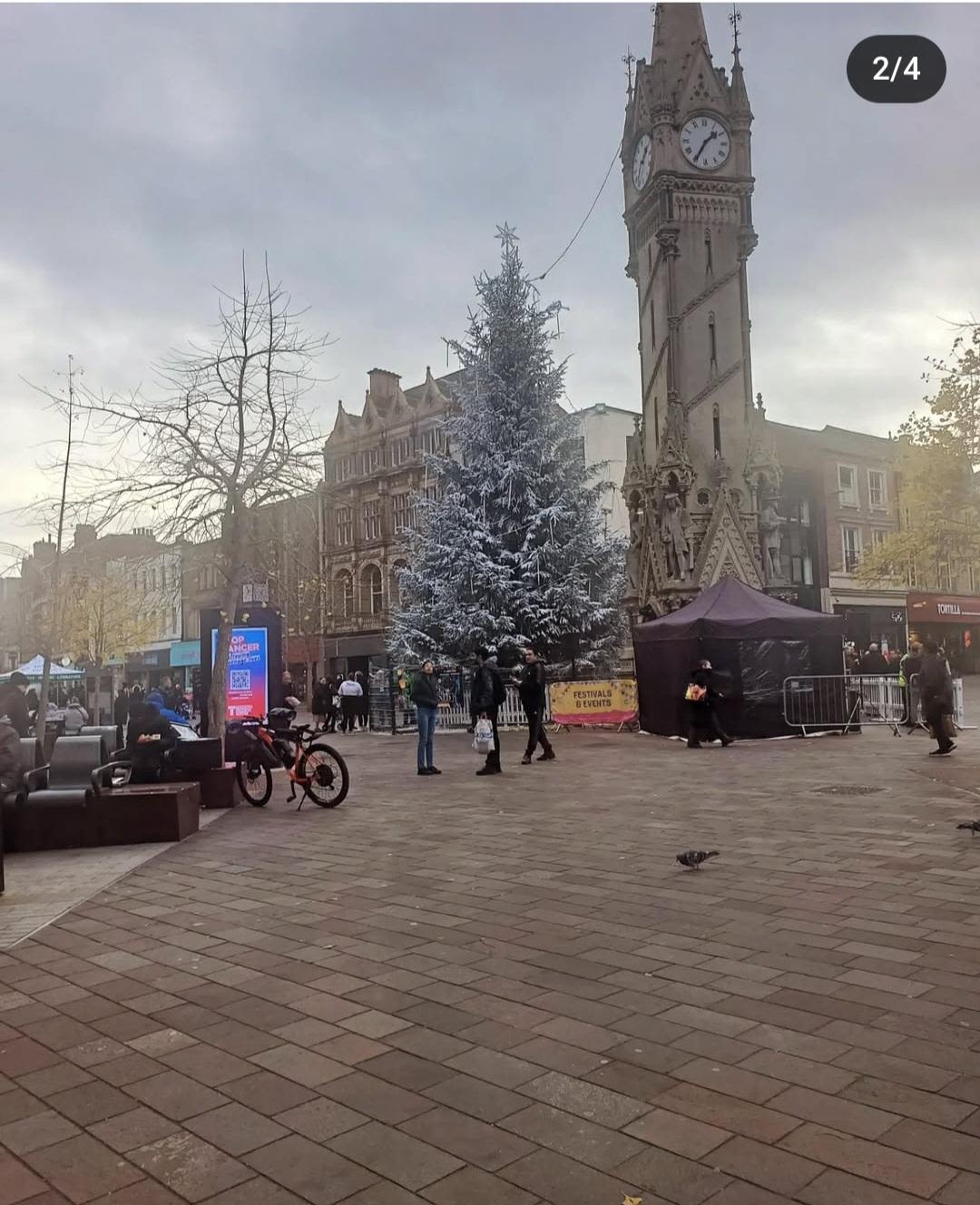Toronto to Leicester
Marianna Figueiredo's journey and challenges with disability in the UK

Marianna Figueiredo grew up in Toronto, Canada – but in her mind, she wished she could run away and live 3,000 miles across the Atlantic, in London, England
This was her dream. Fuelled by her favourite band, One Direction, Marianna, now 26, felt she belonged here, not there.
There were all kinds of obstacles in her way – not least the fact that Marianna has cerebral palsy which affects her physically daily.
Everything she thought about the UK was based on the media. However, as an adult, Marianna learnt about the UK from friends and other people who had come here to study for their master’s degrees.
It became feasible for her to make a career move and achieve that “silly little childhood dream” at the same time.
Switching the capital city of London for Leicester, she now studies Law at the University of Leicester through the JD Pathway, an accelerated course specifically for Canadian graduates.
On September 19, 2023, Marianna, now 26-years-old, moved to the UK.
Marianna's journey from Toronto, Canada, to Leicester, UK
Marianna's journey from Toronto, Canada, to Leicester, UK
However, it wasn’t easy for her due to her cerebral palsy.
She had to learn new skills, adapt to different accessibility and live with some interesting flatmates.
Despite being told it was unusual for someone disabled to study abroad, Marianna’s self-proclaimed stubbornness didn’t let this stop her from pursuing her dreams.
“I do understand that being disabled makes it a bit harder both in the sense of setting up accommodations and adjusting to how a new environment treats disability because I would say that a large part of being disabled is the sociological attitudes to it,” she says.
Marianna was a premature baby, born ten weeks early and was deprived of oxygen for six minutes. This is what caused her cerebral palsy which means she experiences regular pain, muscle tightness, spasms and some reduced motor skills. Due to her disability, she has to use crutches to walk.
What she found the most difficult was the lack of knowledge on available resources in the UK. “Nobody was able to like, sit me down and have a conclusive conversation about this is how the NHS works, and this is how you access the healthcare services that you would normally use back home,” says Marianna who had to figure it all out on her own.
In Canada, most accessible bathrooms are always unlocked. But in the UK, many disabled bathrooms follow the radar key scheme – something which Marianna was not aware of.
You can book an accessible bus in Toronto which she would use often. But since moving to England, she has struggled with public transport accessibility. “One of the biggest struggles I dealt with was a lot of bus drivers asking me how badly I needed the ramp on a scale of one to ten as they manually have to put it out. But if I'm asking you, I'm fairly certain that I need it. I wouldn’t ask for it otherwise,” she says.
She also had to learn how to do different things that she never had to do. Throwing out rubbish was different – there aren’t trash chutes in UK student accommodation. Unlocking doors was different as she was used to a pin pad or biometric lock.
“I just found the process of dealing with accessibility issues or outages different and challenging at first. Now that I understand how it works, I'm better at advocating for my needs,” says Marianna, who is much more settled now.
Not only has she faced issues with accessibility, but she has also struggled with making friends. Some of her friends in Canada she’s had since the age of 14. They were never bothered by her physical disability. This wasn’t the same experience she had here.

“Yes, I'm disabled and yes, I'm a law student, so I suppose I should be relatively serious.
“But also, sometimes you just kind of want to have fun, but because of the lack of accessibility, a lot of people would assume I couldn't or wouldn't want to.”
Marianna Figueiredo


Eventually Marianna found some good friends. These friends were worried about her finances and the possible mental health impact it could have on her. This is why they set up a GoFundMe page to keep her afloat for a year.
Ideally, the GoFundMe page would cover a majority of costs Marianna faces as a student from abroad, who cannot benefit from Disabled Students Allowance. But due to the tough times with the cost-of-living crisis, she understands that not everybody can donate.
Support: The GoFundMe set up by her friends
Support: The GoFundMe set up by her friends
“One of the biggest cultural shocks for me is that education here truly is a privilege,” says Marianna who recognises how costly university education can be in the UK.
As a child, Marianna’s interest in law came from her mum’s dream, who wasn’t educated past the third grade. This influenced her as she wished to make her parents proud. As Italian and Portuguese immigrants, they sacrificed a lot.
Later, she became more acutely aware of how rights people have on paper aren’t rights in practice. As a disabled person, she wants to be within the system and rework it from her own personal experiences and knowledge.
After a tough year of adjusting and having moments of self-doubt, depression and feeling overwhelmed, Marianna is determined to have a better year socially and academically.
Home of study sessions: Leicester Law School
Home of study sessions: Leicester Law School
“As much as I hate this word, if you are resilient enough to deal with additional challenges, then do it. It’s worthwhile, and I’m so grateful that I’ve had the experiences that I’ve had."
Marianna Figueiredo


